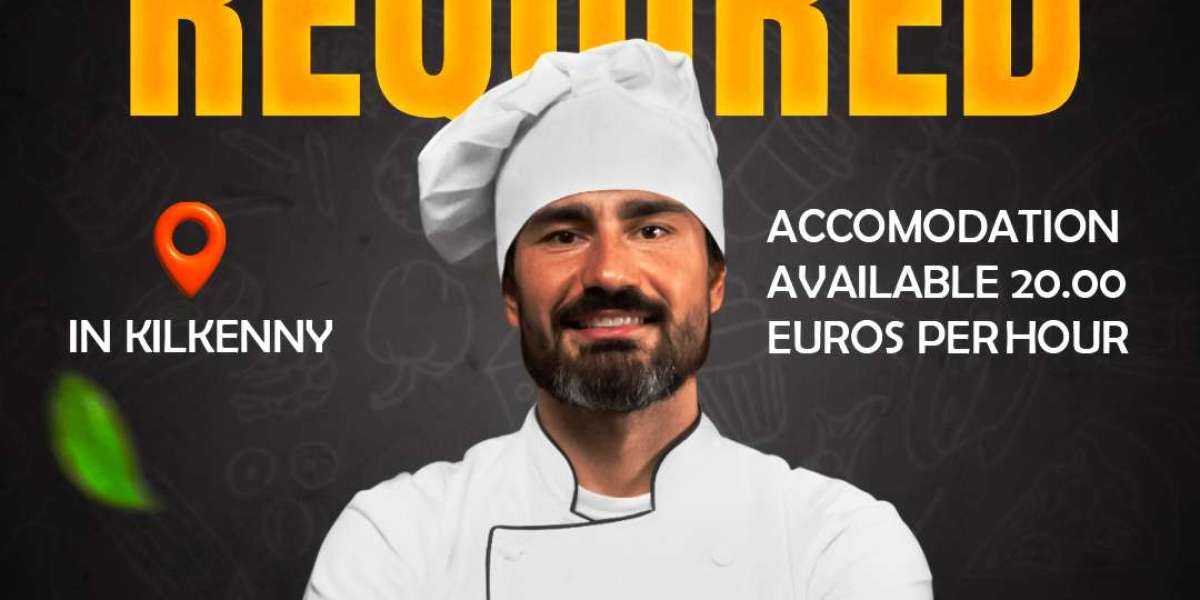In Ireland’s bustling hospitality industry, the demand for skilled chefs has never been higher. Restaurants, hotels, catering companies, and event venues are constantly seeking reliable kitchen talent to keep up with the fast-paced nature of the business. One solution that has grown in popularity is hiring contract chefs. These chefs bring expertise, flexibility, and fresh perspectives to kitchens across the country, helping businesses maintain smooth operations while offering chefs new career paths.
This blog explores the rise of contract chefs in Ireland, why they are in demand, and how both chefs and employers benefit from this flexible working arrangement.
What is a Contract Chef?
A contract chef is a professional hired on a temporary or fixed-term basis to support a business in need of culinary expertise. Unlike permanent chefs who are tied to a single establishment, contract chefs often move between multiple venues. Their contracts can range from a few days to several months, depending on the employer’s needs.
This flexible model benefits businesses during peak seasons, staff shortages, or special events while allowing chefs to diversify their experiences and expand their skill sets.
Why Contract Chefs Are in Demand in Ireland
Several factors have led to the rise of contract chefs:
Seasonal Tourism: Ireland’s hospitality sector thrives on tourism, particularly in the summer months. Hotels and restaurants often hire contract chefs to handle the seasonal influx of guests.
Staff Shortages: With ongoing challenges in recruitment, businesses struggle to find permanent chefs. Contract chefs help fill these gaps quickly.
Event Catering: Weddings, corporate events, and festivals require temporary yet highly skilled kitchen staff.
Flexibility for Employers: Instead of long recruitment processes, businesses can bring in contract chefs immediately to keep kitchens running smoothly.
The Benefits for Chefs
Working as a contract chef offers numerous opportunities:
Flexibility: Chefs can choose when and where they want to work.
Variety: Each placement offers exposure to different cuisines, management styles, and kitchen environments.
Skill Development: Contract chefs often adapt quickly to new teams and menus, strengthening their versatility.
Networking: Working across different venues allows chefs to build strong professional connections.
Work-Life Balance: For some, shorter contracts provide more control over personal time.
Challenges of Being a Contract Chef
While rewarding, contract chef work comes with challenges:
Uncertainty: Contracts may not always guarantee consistent income.
Adjustment Periods: Constantly adapting to new teams and kitchens can be demanding.
Limited Benefits: Unlike permanent roles, contract positions may not always include holiday pay or pension contributions.
However, many chefs find that the advantages outweigh the drawbacks, particularly in terms of flexibility and career growth.
Employers and the Role of Agencies
Most Irish businesses turn to chef recruitment agencies to find reliable contract chefs. These agencies maintain a pool of experienced professionals ready for assignments at short notice. This saves employers time and ensures a higher standard of quality in the kitchen.
Agencies also play a crucial role in supporting contract chefs by matching them with suitable roles, negotiating pay rates, and offering career guidance.
The Future of Contract Chefs in Ireland
As Ireland’s hospitality sector continues to expand, the reliance on contract chefs is expected to grow. The flexibility they bring makes them an invaluable part of the industry’s workforce, and more chefs are likely to consider this career path as a viable alternative to permanent positions.
Conclusion
Contract chefs in Ireland represent the evolving nature of the culinary profession. They bring adaptability, creativity, and expertise to kitchens while enjoying the freedom to shape their own careers. For employers, they provide a quick, efficient solution to staffing challenges. With the industry becoming more dynamic, contract chefs are set to remain an essential ingredient in Ireland’s thriving hospitality scene.














